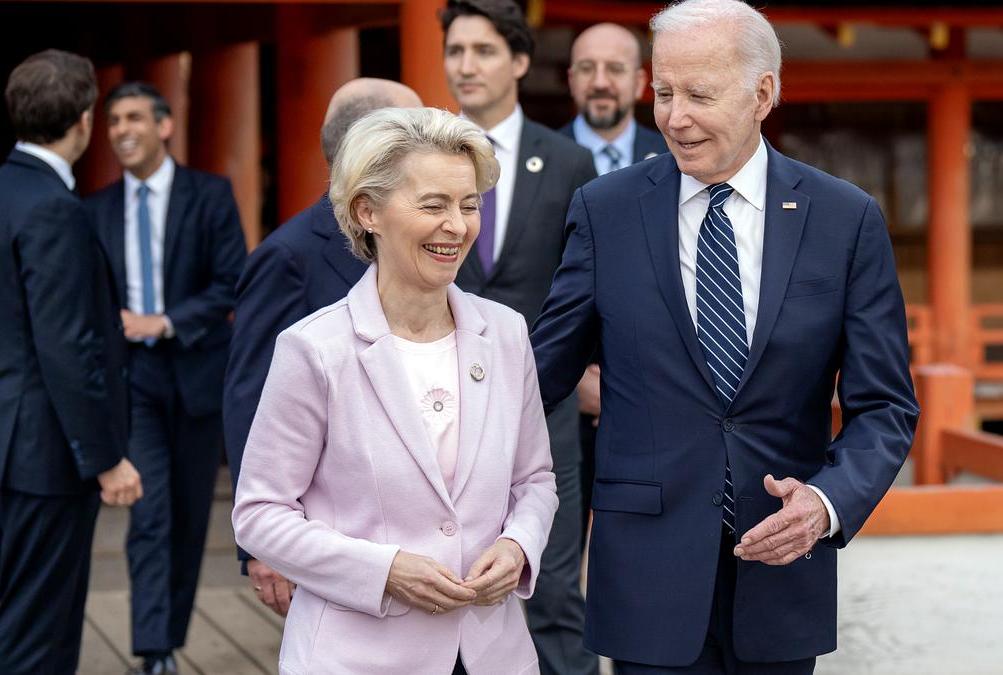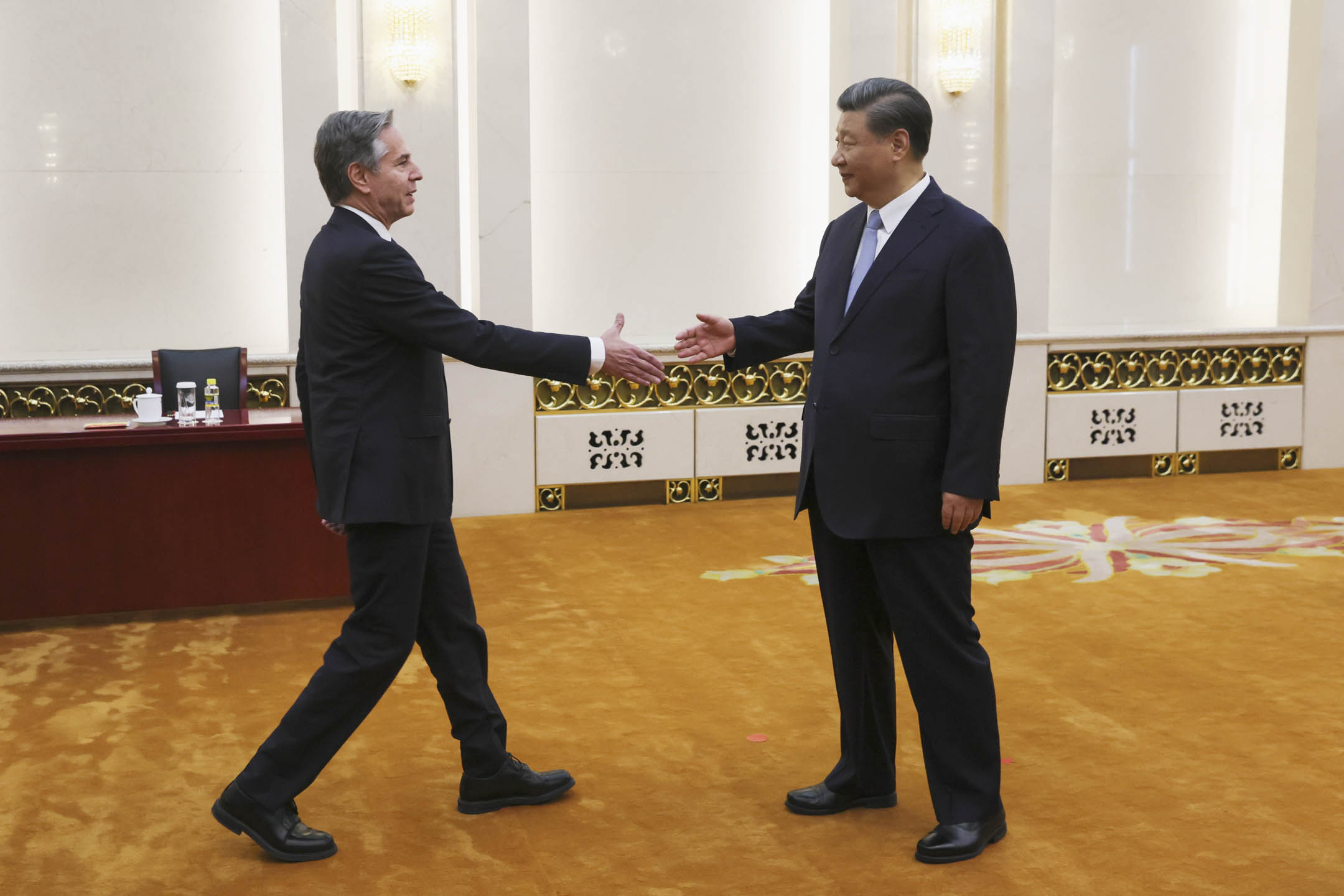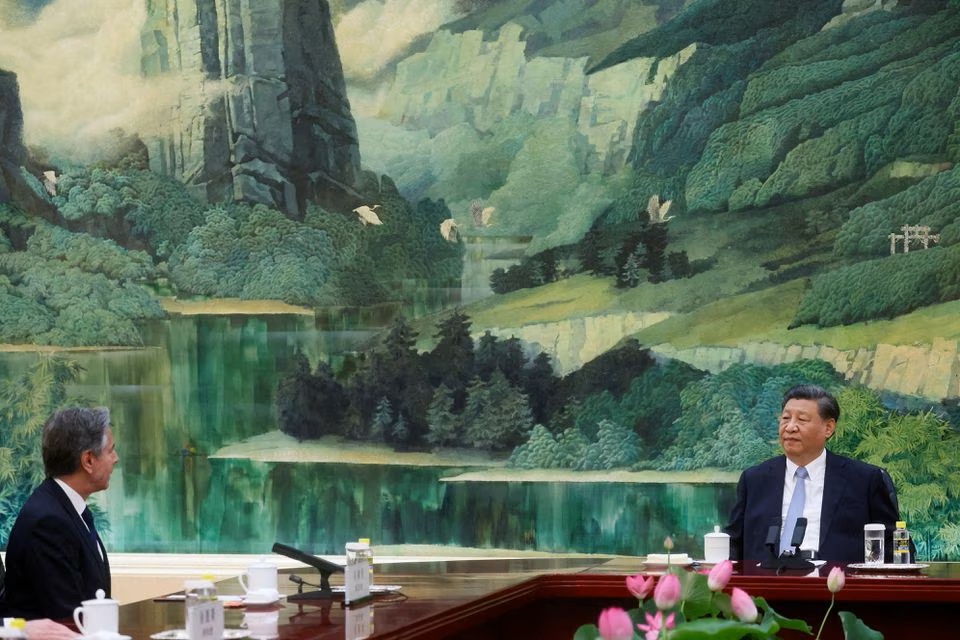
Yi Fan, a Beijing-based political commentator
Jul 03, 2023
When Tony Blinken last visited Beijing in 2016, he was there together with a large, cross-departmental delegation attending a range of bilateral dialogues. Those were better days for China-U.S. relations. Back then, perhaps even Blinken himself might not have thought that this relationship would take a drastic turn and hit “the lowest point” when he visited Beijing again – after a hiatus of seven years.

James Chau, Host, China-US Focus
Jun 29, 2023
Just as a pianist practises a new piece of music slowly, with attention to every phrase, keeping the first signs of goodwill between Washington and Beijing on track calls for a disciplined use of words. More educational exchanges and people-to-people interactions will also help improve understanding and dispel fear and suspicion.
Brian Wong, Assistant Professor in Philosophy and Fellow at Centre on Contemporary China and the World, HKU and Rhodes Scholar
Jun 29, 2023
U.S. Secretary of State Antony Blinken’s trip to China marked the first proper meeting between executive representatives from the U.S. and China since January’s balloon fiasco. Both countries are far away from signing into binding commitments with one another, but the summits alone provide a platform for communication to take place.
Stephen Roach, Senior Fellow, Yale University
Jun 29, 2023
US Secretary of State Antony Blinken’s long-delayed trip to Beijing has come and gone. Despite the predictable optimistic spin on the visit – both sides agreed to strengthen people-to-people exchanges and promised to continue talks – it did little to defuse the increasingly fraught conflict between the United States and China.

Sebastian Contin Trillo-Figueroa, Geopolitics Analyst in EU-Asia Relations and AsiaGlobal Fellow, The University of Hong Kong
Jun 29, 2023
Redefining trade and economic relationships to achieve balance and prevent excessive dependence in strategic sectors has emerged as a key protectionist policy and geopolitical tool among major global powers. And while policies like dumping, dual circulation, security and development, or decoupling and de-risking, all share a common objective, each major power must determine its own mechanisms for course correction.

Zhao Minghao, Professor, Institute of International Studies at Fudan University, and China Forum Expert
Jun 27, 2023
A single visit to China by the U.S. secretary of state will not change the trajectory of relations, and American officials have tried to lower expectations. The foremost test in the years to come will be the prevention of war, which many believe is unavoidable.

Wang Yufan, Assistant Research Fellow, Department of American Studies, CIIS
Jun 27, 2023
A change to softer rhetoric by the United States seems aimed at placating its domestic business community, but the ultimate objective of containing China hasn’t changed. U.S. Secretary of State Antony Blinken said there’s a big difference. We shall wait and see.
Sourabh Gupta, Senior Fellow, Institute for China-America Studies
Jun 21, 2023
Antony Blinken’s visit to China will be a pivotal juncture in U.S.-China relations. The opportunity for both sides to start acting in good faith toward one another is precious and could change the trajectory of the near future.

Sun Chenghao, Fellow, Center for International Security and Strategy of Tsinghua University; Munich Young Leader 2025
Su Liuqiang, Research Fellow, SIIS
Jun 21, 2023
The window of opportunity for rapprochement between China and the U.S. is likely small, given the approach of America’s polarizing presidential election season. To put it bluntly, if the Biden administration fails to make corrections 2023 may become another lost year.

Shao Yuqun, Director, Institute for Taiwan, HK and Macau Studies, Shanghai Institutes for International Studies
Jun 21, 2023
U.S. Secretary of State Antony Blinken's visit to China represents one of the steps taken to actualize the principles discussed during the meeting between President Xi Jinping and his U.S. counterpart, Joe Biden, in Bali. The visit was initially planned for February this year, but following the "spy balloon" incident, the Biden team decided to postpone it. This decision was influenced by domestic political pressures and an attempt to leverage these pressures against China.
Back to Top

- China-US Focus builds trust and understanding between the U.S. and China through open dialogue among thought leaders.
- Our Offerings
- Topics
- Videos
- Podcasts
- Columnists
- Research Reports
- Focus Digest
- Stay Connected
-
Thanks for signing up!
- Get the latest stories from China-US Focus weekly.